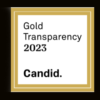Conservation Connect is a middle school level web-based video series produced by the U.S. Fish and Wildlife Service. This series inspires a new generation of conservation stewards by taking students on e-fieldtrips across the country to learn more about wildlife species, conservation careers, and technology used to study and protect these wild creatures.
Want to start a school garden? Nature Conservancy’s lesson plan cover planning, building, and caring for your school garden, plus a video on overcoming common student fears.
Elementary GLOBE’s modules introduce students in primary grades (Grades K-4) to the various aspects of Earth system science. Using a storybook approach, the modules utilize a science-based, fictional narrative to engage students in the scientific method. The modules also challenge them to extend their lessons into the natural world through observation and measurement of their surrounding environment.
These video programs explore how children learn. Based on recent research, as well as the pioneering work of Piaget and others, Minds of Our Own shows that many of the things we assume about how children learn are simply not true. For educators and parents, these programs bring new insight to debates about education reform.
They offer free ready-to-teach lessons for middle school that challenge stereotypes and feature authentic conservation champions breaking barriers around the world. We also provide trainings to help educators bring diverse role models and approaches to environmental literacy into their classrooms.
Site for teachers to find free and pay-per-use educational K-12 school resources. It allows teachers to come up with fresh ideas to inspire new ways of learning.
Nature Lab has been recognized with an Anthem Award and a Telly Award for video content and learning modules that raise awareness about the challenges facing the natural world—and what young learners can do to help solve them.
The primary resources support core subjects like English, Maths, and Science, while also covering the wider curriculum with resources for Geography, History, Art, and Culture – which includes opportunities for SMSC (spiritual, moral, social, and cultural) development.
Each primary resource comes with a list of the curriculum areas that it covers, to support you in finding a balanced learning plan. The writing follows the same tone as National Geographic Kids magazine, and every primary resource is sure to engage children by making learning fun and accessible.
Students will learn that people in countries with fewer resources suffer disproportionately from climate change, even though their countries contribute fewer emissions than wealthier countries.
There is a glossary at the end of the book.
These courses are guided, to be inspired to embed connections to the more-than-human-world in my day-to-day life, continuously self-reflect, and adapt my practices to meet community needs over time
SAFE Worldwide, Inc is a 501(c)(3) non-profit organization, where 100% of your donation is tax-deductible to the extent allowed by law in the United States of America. We are incorporated in the state of California, USA. EIN #81-3680190
